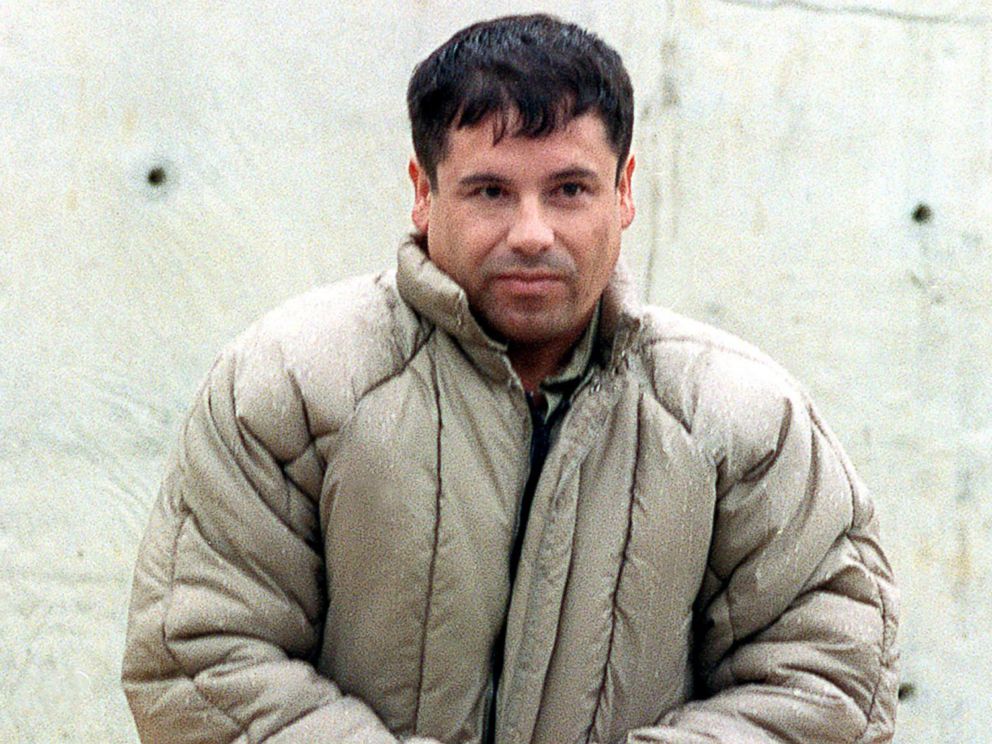On January 8th, 2016, narcotics history was made forever. However, the breaking news was strangely familiar. After six months on the run following his escape from Altiplano Prison, notorious drug lord Joaquin “El Chapo” Guzmán was finally recaptured by the Mexican government. This will be the third capture of El Chapo, who initially escaped maximum security Puente Grande Prison in Guadalajara in 2001. Guzmán, known by contemporaries as “El Chapo” – “shorty” – is hailed as the world’s most infamous drug lord and is the kingpin of the Sinaloa cartel.
Journalists and critics alike have been scouring the evidence for the elusive details of Guzmán’s recapture, but each story has one thing in common: information from Guzmán’s interview with American actor Sean Penn and Mexican reporter Kate del Castille for Rolling Stone magazine. The purpose of these interviews was to make a biopic of Guzmán’s life within the Sinaloa cartel. Mexican Attorney, General Arely Gomez, credits El Chapo’s recapture to the information that was made available from Guzmán’s meetings with the pretend “actors and producers.” It was from those meetings that they were able to closely track his location. Guzmán’s premeditated escape from prison was foreshadowed by his request to his lawyers to trademark the name “El Chapo” for the potential film. The request was subsequently denied by the Mexican government. It is highly coincidental that these events occurred as a biopic-style television series was about to be released about Colombian drug lord Pablo Escobar.
“Narcos,” an original television series released by Netflix in August 2015, tells the partially true story of American DEA officer Steve Murphy and his involvement in the downfall of famed Colombian drug lord Pablo Escobar. As chronicled within “Narcos,” the eminent demise of the Medellin Cartel was sparked by Escobar’s foray into political life in hopes of becoming president of Colombia. In his desire for public prominence, Escobar exposed himself and the cartel to scrutiny by law enforcement and public officials. In the end, his unshakable desire for power, fueled by his overwhelming hubris, led to his demise.
Guzmán’s life, like Escobar’s, is a cinematic hit in the making. Growing up in abject poverty in the Mexican state of Sinaloa, Guzmán climbed through the ranks within the Sinaloa cartel to become its kingpin. He, like Escobar, used his tremendous wealth to fund development and welfare projects in Sinaloa to give back to his local community. The lives of Pablo Escobar and Joaquin Guzman exhibit elements of magical realism – they are darkly fantastical, almost magical, forces accepted as normal parts of the Mexican and Colombian narrative. These narcotics-smuggling bandits pose as modern day Robin Hoods, using their vast influence to take from the rich, in the form of the American drug market, and give to the Mexican poor. However, the damage left in the crossfire, in the form of civilian deaths from violence and narcotics, outweighs any perceived benefit. It is estimated that Mexican drug-related organized crime has been responsible for 80,000 deaths since 2006, with many more unreported. Guzman is a man conflicted, expressing his desire to economically enrich the area surrounding Sinaloa but accomplishing this by using violence against the very people he seeks to help.
The respective narratives of these drug lords mimic that of Greek mythology, with Escobar and Guzman playing the role of tragic hero for the modern age. According to Aristotle, the audience must view the tragic hero as a “larger and better” version of himself. However, what makes Guzman “larger and better” is not a heroic victory, but the smuggling of billions of dollars of illegal narcotics into the United States. He is the most powerful drug lord in history – a larger and better version of his predecessors – but has achieved unprecedented evil in doing so.
As proven by his subsequent capture, Guzmán’s interview for Rolling Stone was nothing short of an expression of hubris – excessive pride towards or in defiance of the gods. In this case, the gods in question are global powers America and Mexico. If we can learn nothing else from classic Greek tragedy, it is that hubris is always a fatal flaw. El Chapo’s desire to appeal to a mainstream American audience in turn weakened his defense against capture. His desire for fame, prestige, and global recognition outweighed his desires for freedom.
The capture of Guzmán is hailed as an overwhelming success for the Mexican government. While Mexico may be physically safer with Guzmán back behind bars, the mythical legacy of Guzmán continues to generate global curiosity. The further Guzmán solidifies into folklore, the stronger the influence of the narcotics trade on popular culture will become. Though he joins his ancient Greek counterparts and his not-so-ancient counterpart Pablo Escobar in failing at the hands of his own hubris, the legend of Joaquin “El Chapo” Guzmán remains modern mythology.
